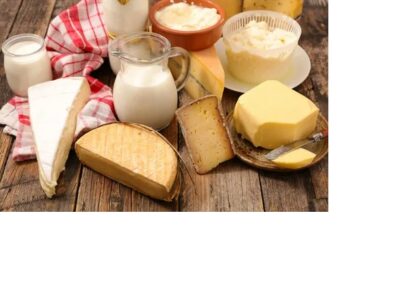Coffee beans are a beloved staple in many households, providing the rich and aromatic foundation for the beloved beverage that fuels mornings around the world. While most people enjoy coffee in its brewed form, some may wonder about the safety and potential benefits of consuming coffee beans in their whole, unprocessed form. In this comprehensive guide, we’ll explore the safety of eating coffee beans, potential benefits, as well as any associated risks or dangers.
Understanding Coffee Beans
Coffee beans are the seeds of the coffee plant, typically harvested from the Coffea arabica or Coffea robusta species. After harvesting, coffee beans undergo processing to remove the outer layers and are then roasted to enhance flavor and aroma. Roasted coffee beans are ground and brewed to make coffee, but they can also be consumed in their whole form.
Safety of Eating Coffee Beans
Consuming coffee beans in moderation is generally considered safe for most people. However, there are a few factors to consider:
Caffeine Content:
Coffee beans contain caffeine, a natural stimulant that can have both positive and negative effects on health. Eating coffee beans may lead to a higher caffeine intake compared to drinking coffee, as the beans are consumed in their concentrated form. Individuals sensitive to caffeine or those with certain health conditions should consume coffee beans in moderation to avoid adverse effects such as increased heart rate, anxiety, or insomnia.
Potential for Choking:
Whole coffee beans are small and hard, posing a potential choking hazard, especially if consumed without chewing thoroughly. It’s essential to be cautious when eating coffee beans and to chew them carefully to prevent choking or discomfort.
Dental Health:
The hard texture of coffee beans may also pose a risk to dental health, particularly if consumed frequently or in large quantities. Crunching on coffee beans can potentially chip or damage teeth, leading to dental issues over time. It’s advisable to enjoy coffee beans in moderation and to practice good oral hygiene habits.
Benefits of Eating Coffee Beans
While coffee beans are primarily consumed for their delicious flavor and energizing effects when brewed into coffee, eating them in their whole form may offer some potential benefits:
Antioxidants:
Coffee beans are rich in antioxidants, including chlorogenic acid and polyphenols, which have been associated with various health benefits, such as reduced inflammation and protection against chronic diseases like heart disease and diabetes.
Energy Boost:
Due to their caffeine content, eating coffee beans can provide a quick energy boost and enhance alertness and concentration. Some individuals prefer eating coffee beans as a convenient and portable alternative to drinking coffee, especially when on the go or during outdoor activities.
Mood Enhancement:
Caffeine in coffee beans can also have mood-enhancing effects, promoting feelings of well-being, happiness, and mental clarity. Consuming coffee beans may help improve mood and cognitive function, providing a temporary lift during periods of fatigue or low energy.
Dangers and Risks of Eating Coffee Beans
While eating coffee beans in moderation is generally safe for most people, there are potential risks and dangers to be aware of:
Digestive Discomfort:
Consuming large quantities of coffee beans may lead to digestive discomfort, including stomach pain, nausea, or diarrhea, particularly in individuals with sensitive stomachs or gastrointestinal issues. It’s essential to listen to your body’s signals and adjust your intake accordingly.
Insomnia and Anxiety:
Excessive consumption of coffee beans, especially in the evening or close to bedtime, can disrupt sleep patterns and contribute to insomnia or anxiety. Individuals sensitive to caffeine should be mindful of their intake and avoid eating coffee beans late in the day.
Addiction and Dependence:
Regular consumption of coffee beans or other caffeinated products can lead to dependence and withdrawal symptoms such as headaches, irritability, and fatigue when caffeine intake is reduced or discontinued. It’s important to consume coffee beans in moderation and to monitor your caffeine intake to avoid dependence.
How to Eat Coffee Beans
If you’re interested in trying coffee beans as a snack or pick-me-up, here are a few ways to enjoy them:
Straight:
Simply eat coffee beans as they are, either roasted or chocolate-covered, for a quick caffeine boost and burst of flavor.
Mixed with Other Snacks:
Add coffee beans to trail mix, granola, or baked goods for an extra kick of energy and flavor.
Ground and Sprinkled:
Grind coffee beans into a coarse powder and sprinkle them over yogurt, oatmeal, or desserts for a gourmet touch.
Blended in Smoothies:
Blend coffee beans into smoothies or shakes for a caffeine-infused beverage with a rich, coffee flavor.
Conclusion
In conclusion, eating coffee beans can be a safe and enjoyable way to experience the flavor and benefits of coffee in a convenient and portable form. While coffee beans offer potential benefits such as antioxidants, energy boost, and mood enhancement, it’s essential to consume them in moderation and be mindful of their caffeine content. Individuals sensitive to caffeine or those with certain health conditions should exercise caution and consult with a healthcare professional if they have any concerns. Overall, enjoying coffee beans as an occasional snack or treat can be a flavorful and satisfying experience, enhancing your enjoyment of coffee in its whole, unprocessed form.
- Ultimate Review: Vessel’s Expedition Series – Gear Up for Adventure with Style and Function! - August 22, 2024
- Benefits of Barberry Supplements - April 2, 2024
- Benefits of Barrenwort Supplements - April 2, 2024






